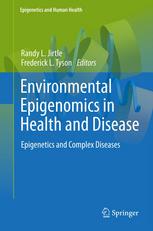

Most ebook files are in PDF format, so you can easily read them using various software such as Foxit Reader or directly on the Google Chrome browser.
Some ebook files are released by publishers in other formats such as .awz, .mobi, .epub, .fb2, etc. You may need to install specific software to read these formats on mobile/PC, such as Calibre.
Please read the tutorial at this link: https://ebookbell.com/faq
We offer FREE conversion to the popular formats you request; however, this may take some time. Therefore, right after payment, please email us, and we will try to provide the service as quickly as possible.
For some exceptional file formats or broken links (if any), please refrain from opening any disputes. Instead, email us first, and we will try to assist within a maximum of 6 hours.
EbookBell Team

4.8
74 reviewsThere are now compelling human epidemiological and animal experimental data that indicate the risk of developing adult-onset complex diseases and neurological disorders are influenced by persistent epigenetic adaptations in response to prenatal and early postnatal exposures to environmental factors. Epigenetics refers to heritable changes in gene function that occur without a change in the sequence of the DNA. The main components of the epigenetic code are DNA methylation, histone modifications, and non-coding RNAs. The epigenetic programs are established as stem cell differentiate during embryogenesis, and they are normally faithfully reproduced during mitosis. Moreover, they can also be maintained during meiosis, resulting in epigenetic transgenerational disease inheritance, and also potentially introducing phenotypic variation that is selected for in the evolution of new species. The objective of this two volume book is to provide evidence that environmental exposures during early development can alter the risk of developing medical conditions, such as asthma, autism, cancer, cardiovascular disease, diabetes, obesity, and schizophrenia later in life by modifying the epigenome. Consequently, epigenetic research promises to markedly improve our ability to diagnosis, prevent, and treat the pathological conditions of humans; however, it also introduces unique legal and ethical issues. This volume highlights the correlation between environmental factors and complex diseases, such as autism, addiction, neurological diseases, diabetes, obesity and cancer. It concludes with a chapter on legal and ethical implications of epigenetics.